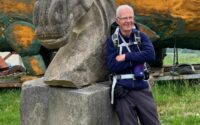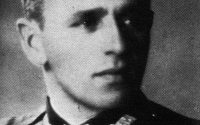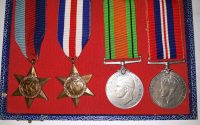1939 War and Exile Part 1
One of my cousins once asked my father how he arrived in Scotland in 1939. He replied with the following letter.
‘Dear Elizabeth
I shall never forget the year 1939.
My friends and I were in the final year in our High School and after June we would be conscripted to the Polish army to serve for two years National Service. The summer that year started quite early and we were able to swim in the river in April and it proved to be the longest summer I can remember.
From June onwards we, in Poland had a feeling that war was imminent. My father was a quartermaster and deputy commanding officer of the 82nd Siberian Infantry regiment and he often dropped hints at home of what the army was doing. We lived happily in a street named Unij Lubskiego in Brześć Litewski (Brest Litovsk) a fortress town on the River Bug in the Polesia region on the Pripet Marshes, about 250km from the Soviet border. Hitler’s threats did not really bother us; our faith in the might of Great Britain and France, our allies was absolute and the readiness of our army and air force gave us confidence, so much so that some of us were really quite cocky.
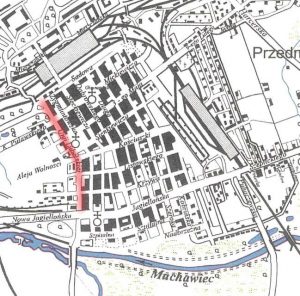
The Molotov-Ribbentrop non-aggression pact between the USSR and Germany, in the last days of August, did not diminish our belief that Germany would attack us, but a curious thing happened on the evening of 31st August. I came home about half past nine in the evening and my mother and sister told me that as they were watching a beautiful sunset, the rays of the sun formed what appeared to be a cross. This was later confirmed by other people and at six o’clock next morning on the 1st September, the German bombers dropped their first bombs on the railway station. Most of we ex-schoolboys were asked to do certain duties to help the war effort and my duty was plane spotting from the water on the outskirts of the town. We went in pairs and were we scared! On the 7th September my father said goodbye to my mother and my sister and myself and marched his regiment west to join in the fighting. I never saw him again.
It soon became apparent that our armed forces, though showing outstanding bravery, were no match against the mighty German tanks and the Luftwaffe. The latter really excelled itself by bombing and strafing anything that moved. It was the first example of total warfare which was carried out relentlessly for six years.
As the German armies moved doggedly eastwards, my mother advised me to go to Pinsk, about 200km from Brest-Litovsk. Three of my friends and I packed a few things and began our trek eastwards. Two days later the Germans entered Brest-Litovsk but were in no hurry to move further east. The reason for this reluctance was soon apparent to us. My friends and I were staying in a peasants cottage in a little village about 100km from Pinsk, and when we awoke that morning on 17th September we were stunned to see Russian tanks thundering westwards. Germany (more specifically Prussia) and Russia had partitioned Poland three times almost two hundred years before. This was to be the fourth partition.
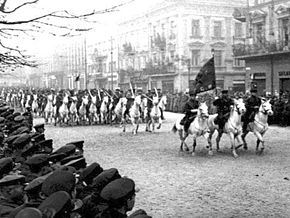
Our peasant host urged us to remain with his family till things settled down, but we believed that it would be easier for us to travel back home while chaos and confusion reigned, so we set off immediately. In retrospect it proved to be the correct decision as security was tightened by the Soviet secret police the NKVD ( forerunner of the KGB) https://en.wikipedia.org/wiki/NKVD . We were re-united with our families two days later. One week later the NKVD informed us that we would have to move from our house as it belonged to the Polish Military Authorities and that we might only take with us what we could carry in our suitcases. Our friends put us up in their large house and we tried to settle down as best we could. The Soviet authorities soon began mass deportations to Siberia of Polish intelligentsia (all educated professional people, the police and military families. We qualified on two counts as my father was a military office and my mother a dentist. My friends and I came to the conclusion that unless we tried to escape to France or Britain we would be deported to Siberia. With the consent and blessings of our families we set off north to the city of Wilno (now Vilnius), in order to cross over to Lithuania but when we arrived there we realised that we were too late, as the Russian army had occupied Lithuania two days earlier. We decided to turn back and head for either Romania or Hungary.
End
1939 War and Exile: Part 2 next week
